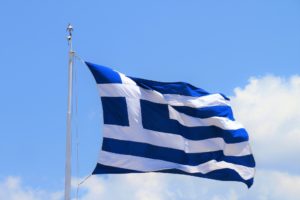 On October 28 of each year citizens of Greece and Cyprus, as well as Greek communities throughout the nations, take time to observe Oxi Day (also known as Oxi Day). ‘Oxi’ is the Greek word for ‘no’. The date commemorates the history-making stance taken in 1940 by Prime Minister Ioannis Metaxas against the oppressive pressure exhibited by Benito Mussolini, the dictator of Italy which was part of the Axis during WW II.
On October 28 of each year citizens of Greece and Cyprus, as well as Greek communities throughout the nations, take time to observe Oxi Day (also known as Oxi Day). ‘Oxi’ is the Greek word for ‘no’. The date commemorates the history-making stance taken in 1940 by Prime Minister Ioannis Metaxas against the oppressive pressure exhibited by Benito Mussolini, the dictator of Italy which was part of the Axis during WW II.
Events Leading Up to Oxi Day
Italy was in league with the Germans and other Axis powers and sought greater control over more land and resources for their war effort. They had their eye on Greece and strategic locations within the country that would have assisted the Axis if they were to gain access to them. It would have also allowed Italian control over the land and people of Greece.
It was in the wee hours of the morning on October 28th that Metaxas received Mussolini’s demand that Italian forces be permitted to enter Greek boundaries. The ultimatum threatened outright war as the only other alternative. Metaxas gave his answer: “No!” which in Greek is “Oxi!”. The official phrase he used was “So this is war!” The immediate response to the prime minister’s stand was the Italian attack on Greece, marking Greece’s official entry into WW II on the side of the Allies. The Greek citizenry responded to this threat by filling the streets and shouting “Oxi!” to show their support for their prime minister and for Greece.
Initially, Greece was poorly prepared for war but managed to push the Italian forces back to the border for a time. Ultimately, they were overwhelmed and defeated, but their effort is credited with turning the war in the Allies’ favor. Greek resistance took up the challenge and earned their place in Oxi Day celebrations.
Events Oxi Day Commemorates
From that point, the Greek resistance became a source of national pride as they pushed against Mussolini in the effort to free Greece of Axis control. Greece was officially at war on October 28, 1940, and their fight continued until they were overrun and taken over by German and Italian forces. The observation of the holiday began in 1940 and has continued every year since. It serves as a demonstration of Greek unity and support to the resistance as well as for those Greeks who fought in the war.
How It Is Observed Today
Oxi Day became a public holiday after WW II concluded and Greeks were free to celebrate openly. It has continued to the present time with flag ceremonies, family outings and reunions, military parades, and student parades. Athens continues to display the finest and most extensive observations for citizens to enjoy.
Oxi Day serves as a statement of Greek pride in withstanding outside oppression. It is also a reminder of the essential need to withstand tyranny at whatever costs are necessary. Oxi Day honors not only the actual political stance of one man or the collective resistance of his day but the unity and strength of the Greek people when the time came for everyone in the country to rally and resist against a foreign invader.
Source: